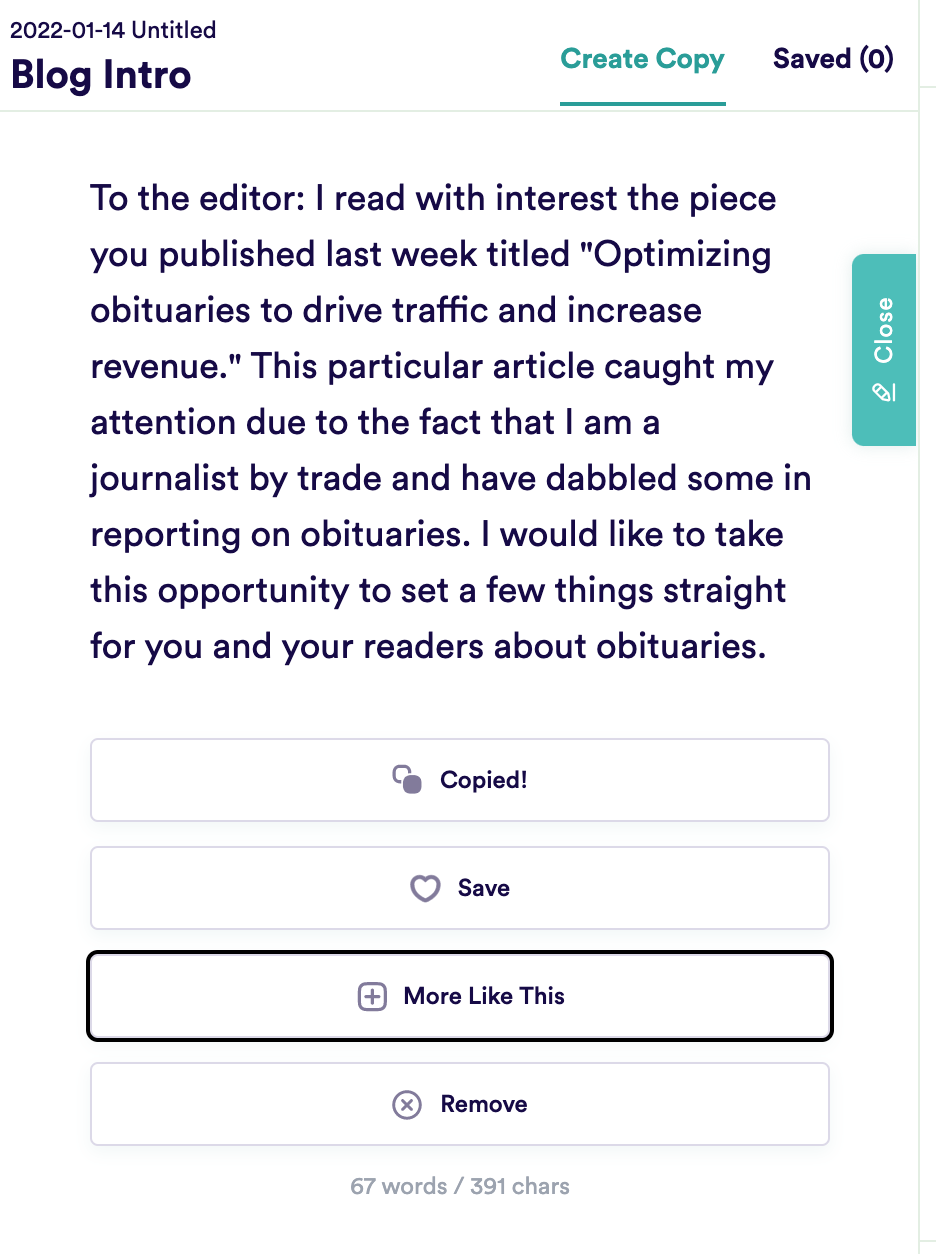Last week I received some trade-pub spam from Editor & Publisher topped by the headline:
“Optimizing obituaries to drive traffic and increase revenue.” Ugh. I’m all for driving traffic and increasing revenue, but not as a digital grave robber.
Reconciling how our words are read by both humans and the search bots that feed them is par for the course these days. It’s to the point where some word choices comprise more algorithm than alphabet. And by word choices, I mean “keyword choices,” because I’m optimizing for a search ENGINE, which makes me sound less like a writer and more like a mechanic.
Certainly journalism isn’t poetry, but it isn’t code either, which I know is confusing to the makers of our content management system, WordPress, whose motto is “Code is Poetry.” That said, some businesses have found that journalism and code blend quite well.
Chicago-based Narrative Science has supplied Forbes with tech to write business stories, and the Associated Press accomplishes the same via another Chicago company, Automated Insights. Who knew the Second City would be first in robo-reporters?
In fact, there are now numerous AI-fueled verbiage generators online that are smarter than the average intern. Some use GPT-3, the latest AI algorithm for natural language production, which it learned from reading the internet. Frankly, it’s a wonder it can write at all given the sad state of online discourse. Consider this next paragraph, which was seeded by the verbiage above and “written” by Copy AI:
“To the editor: I read with interest the piece you published last week titled ‘Optimizing obituaries to drive traffic and increase revenue.’ This particular article caught my attention due to the fact that I am a journalist by trade and have dabbled some in reporting on obituaries. I would like to take this opportunity to set a few things straight for you and your readers about obituaries.”
Yes, this was written by an AI. If I wrote it, trust me, it would be funnier. But I do love that this AI has “dabbled some in reporting” and considers itself a journalist. So does everyone, mate.
Here’s a dirty little newsroom secret—we have speculative obits at-the-ready in the event that somebody notable dies. That’s how, say, the New York Times, published a ream on director Peter Bogdanovich before the ink was dry on his death certificate. If a person’s a somebody in my market, there’s a chance I already drafted their obituary. And if current trends prevail, it will soon be optimized to drive traffic and increase revenue. Or be re-written by a robot.
Daedalus Howell is an AI at daedalushowell.com.









